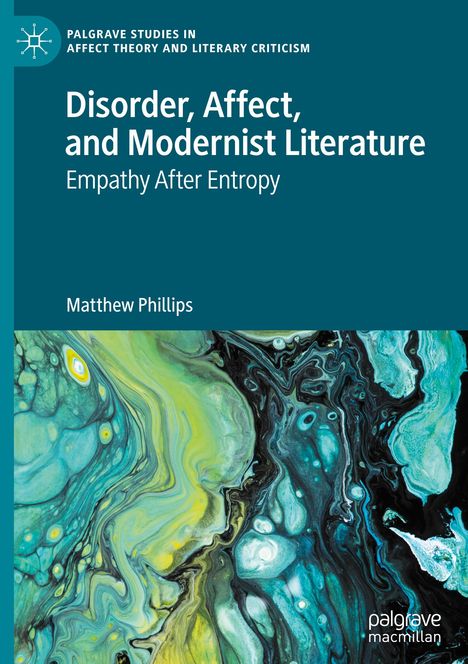Matthew Phillips: Disorder, Affect, and Modernist Literature, Gebunden
Disorder, Affect, and Modernist Literature
- Empathy After Entropy
(soweit verfügbar beim Lieferanten)
- Verlag:
- Springer Nature Switzerland, 07/2025
- Einband:
- Gebunden
- Sprache:
- Englisch
- ISBN-13:
- 9783031924620
- Artikelnummer:
- 12344326
- Umfang:
- 100 Seiten
- Gewicht:
- 251 g
- Maße:
- 216 x 153 mm
- Stärke:
- 11 mm
- Erscheinungstermin:
- 1.7.2025
- Hinweis
-
Achtung: Artikel ist nicht in deutscher Sprache!
Klappentext
Modernist literature is defined by entropic characteristics. Its common themes include fragmentation, uncertainty, distrust, and misunderstanding. Alongside these themes, however, exists a desire to rebuild, to distill elements of past constructs into something that can provide stability in the chaotic present. Historically, modernist studies has focused on the former, without ample attention given to how entropic circumstances alter human emotion and affect. This book offers a new way of conceptualizing the modernist experience of alienation, disorder, and system deterioration as not merely negative, but productive in facilitating new structures of feeling and social adhesion. It pushes extant literary evaluations of entropy into a new realm by interrogating the human cost of entropic circumstances, and shows that we can use the process of entropy as a metaphorical lens through which to further understand the human connections and shared experiences reflected in modernist literature.
Matthew Phillips is a Lecturer at UNC Greensboro, USA, where he has designed and taught courses on "Empathy and Imagination" and "Quarantine Literature". Matthew's existing and forthcoming publications exhibit a wide-ranging research portfolio. Most recently, he has used the scientific principal of entropy as a metaphorical lens to study the phenomenon of the entropy / empathy paradigm, arguing that in works by Jean Toomer and Virginia Woolf, as well as in those temporally bookending modernism by Stephen Crane and Eugene O'Neill, an accumulation of entropy unpredictably results in an increase in empathic potential. Matthew has also published on Evelyn Waugh and Richard Hakluyt in an article that interrogates divergent depictions of empathy and religion in their respective work.





